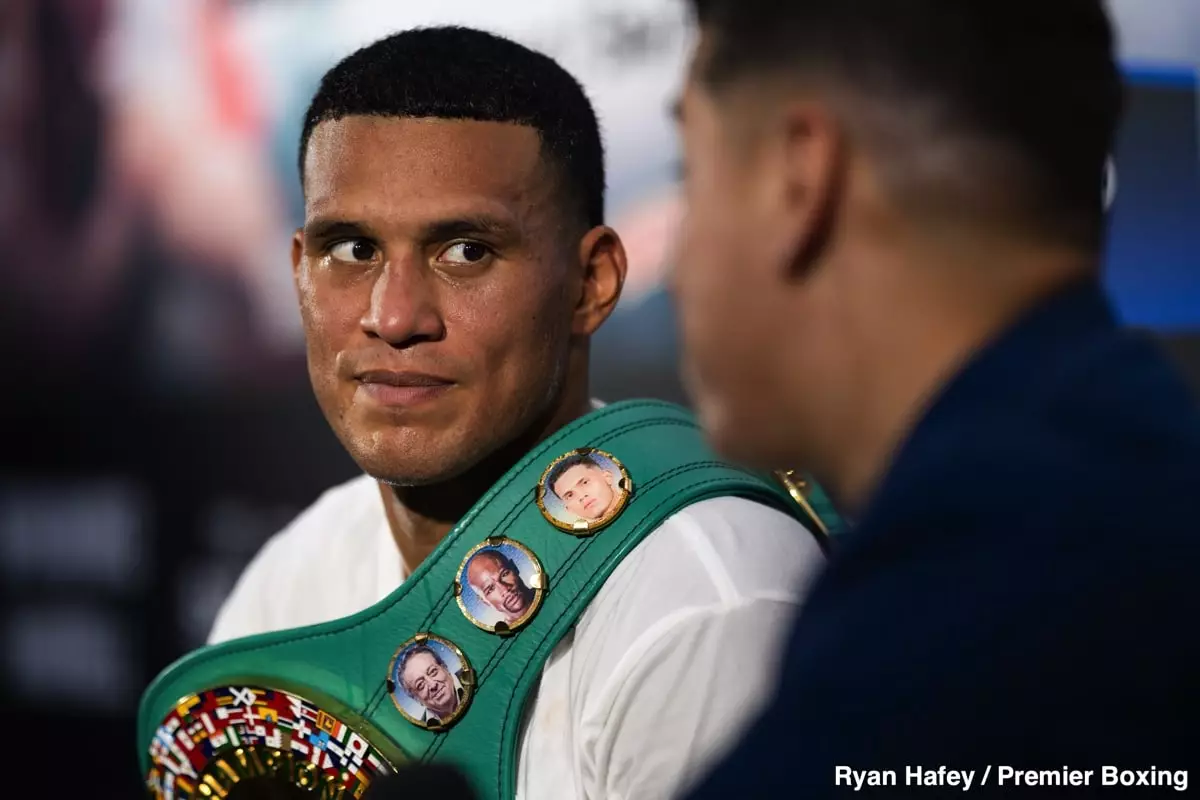David Benavidez: The Struggle with Entitlement and the Quest for Legacy
There’s a compelling drama unfolding in the boxing world, and it centers around David Benavidez. A towering figure in the ring, Benavidez boasts an impressive record of 29 wins and no losses. Yet, despite his successes, he finds himself in a frustrating position. His much-desired matchup with Mexican superstar Canelo Alvarez remains elusive. This situation isn’t just about boxing; it’s a narrative about ambition, entitlement, and the quest for legacy that defines the careers of many athletes.
Benavidez’s belief that a fight with Canelo would be historic underscores more than just his ambitions—it hints at a sense of entitlement that seems to cloud his perspective. He feels that this bout is owed to him due to his undefeated status and potential. But this mindset raises questions about how fighters carve their paths in an industry driven by egos and commercial pressures. Meanwhile, Canelo, a multi-division champion respected worldwide, makes decisions based on what benefits him both financially and professionally.
Key Takeaways
- David Benavidez feels entitled to a high-profile fight with Canelo Alvarez.
- This situation highlights the tension between personal ambition and industry realities.
- Canelo’s choices are influenced by business considerations beyond public expectations.
The Anticipated Clash: Reality Versus Expectation
The hype surrounding a potential Benavidez versus Canelo match is palpable, but it’s essential to address the undercurrents fueling this story. Benavidez’s frustrations stem from a perceived obligation that top-tier fighters should face him based on his record alone. However, boxing is as much about timing and marketability as it is about skill. For Canelo, who has faced numerous champions across divisions, each fight decision involves strategic planning—both for legacy and financial gain.

While Benavidez fixates on Canelo, he risks overlooking immediate challenges—most notably his upcoming bout against WBA ‘regular’ light heavyweight champion David Morrell. Scheduled for February 1st, this fight is crucial for Benavidez’s career trajectory. A loss here could derail his aspirations and shift the narrative away from Canelo entirely. In boxing, focusing too much on future possibilities can lead to neglecting present threats—a lesson many fighters have learned the hard way.
The Immediate Threat: David Morrell
David Morrell represents not just another opponent for Benavidez but a significant hurdle in his path toward greatness. Morrell is an accomplished fighter in his own right, bringing power and technique that could test Benavidez’s prowess like never before. This matchup demands Benavidez’s full attention and preparation. Any complacency or overconfidence could result in an unexpected upset—a risk that no ambitious fighter can afford if they hope to maintain their upward trajectory.
The Public Persona: Ambition or Entitlement
Benavidez’s vocal criticism of Canelo choosing less challenging opponents like Edgar Berlanga and Jaime Munguia reflects a broader critique within boxing circles. Many fans share this sentiment, craving high-stakes bouts that elevate the sport’s integrity. However, Benavidez’s outspokenness also invites scrutiny of his motivations. Are his intentions genuinely altruistic—a drive to entertain fans and challenge himself? Or do they reflect self-serving interests masquerading as noble pursuits?
In professional boxing, the line between ambition and entitlement can blur easily. Fighters must navigate complex dynamics involving personal goals and public expectations while managing their reputations both inside and outside the ring. As Benavidez continues to press for a showdown with Canelo, he must balance these elements carefully to avoid alienating potential allies or undermining his credibility among peers.
Navigating the Boxing Landscape
Boxing is as much about business as it is about personal prestige. Fighters like Benavidez must contend with commercial pressures while striving to build their legacies through meaningful matchups. At times, this requires making difficult choices—prioritizing certain fights over others based on their long-term impact rather than immediate gratification. Understanding this balance is crucial for any boxer looking to leave an indelible mark on the sport.

While Benavidez’s confidence in toppling Canelo is admirable, there lies a tragic irony: his fixation might ultimately prevent the very fight he desires most from happening. Comments suggesting “Canelo seeks easier fights” only serve to create unnecessary rifts within the boxing community—divisions that may otherwise not exist if approached differently.
Final Thoughts
The potential clash between David Benavidez and Canelo Alvarez hinges largely upon Benavidez’s performance against upcoming opponents like David Morrell—and perhaps more importantly—his ability to remain focused on present challenges rather than speculative futures. Should he emerge victorious against Morrell, interest in a fight with Canelo could reignite significantly—but only if he proves himself worthy through actions rather than declarations alone.
David Benavidez
Canelo Alvarez
boxing legacy
professional boxing
boxing challenges


Leave a Reply